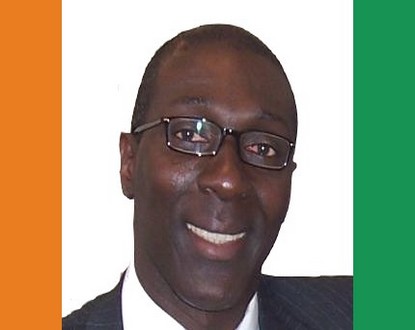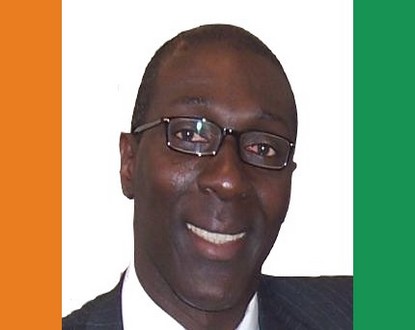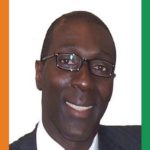Our collaborator Macaire Dagry sends us a new contribution on the political news in Côte d’Ivoire.
 Indeed, it is probably still too early to answer this question and perhaps even to ask it. However, it remains fundamental in the minds of all Ivorians and the entire world who have their eyes fixed on this elected president, whose mere mention of his name provokes various antagonistic and passionate, and sometimes even irrational reactions. For more than fifteen years, with the creation of the concept of “Ivoirité” to exclude him from power, all Ivorian political life has crystallized and revolved around his person. For each of us, African heads of state are by definition dictators, much to their surprise.
Indeed, it is probably still too early to answer this question and perhaps even to ask it. However, it remains fundamental in the minds of all Ivorians and the entire world who have their eyes fixed on this elected president, whose mere mention of his name provokes various antagonistic and passionate, and sometimes even irrational reactions. For more than fifteen years, with the creation of the concept of “Ivoirité” to exclude him from power, all Ivorian political life has crystallized and revolved around his person. For each of us, African heads of state are by definition dictators, much to their surprise.
For some, the new democratically elected president will do no better than his predecessors except for the “Old Man.” The reason cited is that he would be the president of “foreigners,” according to his political opponents. That is, of France and the international community who recognized his victory. For others, this former governor of the BECEAO and former deputy managing director of the IMF, who personally piloted the economic crisis exits of several Southeast Asian countries, as well as their spectacular development, has all the skills to help his country develop and create wealth and jobs. For them, in five years, he will surely do better than his three predecessors, whose entire policy revolved around him. The new Ivorian president knows this; he is eagerly awaited by all those who have fought against him for nearly fifteen years. His slightest mistake, his slightest political or strategic error, will raise sharp criticisms using the “flamethrower.” He knows he is playing a very tight game to definitively establish his legitimacy acquired through the ballot box and strongly contested by his political adversaries, who rightly or wrongly consider him as France’s man. Today, these same “gravediggers” of Ivorian distress and chaos parade at the Golf Hotel to pledge allegiance to him, with a “dagger” hidden in their backs.
The golden palm goes to the president of the constitutional council, whose unawareness of his partisan political act will have dramatic consequences for several generations of Ivorians. This highlights how much this democratically elected president suffers from tremendous pressure even before he starts fully exercising his power. In a spirit of unity, he has surrounded himself with multiple advisors and collaborators, many of whom are from the “system” and have, in one way or another, participated in the various corrupt powers in place for decades. The challenge thus promises to be difficult, but not impossible. Moreover, in the spirit of “Living Together” promoted by his party, the RDR, and national reconciliation, he is forced to collaborate with the FPI cadres of Gbagbo, for whom words strong enough to express the degree of corruption do not yet exist. When Ivorians see on television Laurent Dona Fologo, president of the economic and social council under Gbagbo, and several times minister under the “Old Man” and Bédié, also coming to pledge allegiance to the new president, words fail to describe their disgust. Alone, he symbolizes this “system” of clientelism that so characterizes “our leaders” in Africa: that is, the lack of real political conviction, doubtful morality, ready to switch political sides at any moment not to lose ill-gotten privileges, or who think only about themselves and not the people, continuing to enrich themselves even by making pacts with their worst enemies from yesterday. Like many others, these great “Predators” of public funds are once again trying to position themselves within the new power. Between 1990 and 1993, when President Ouattara was Prime Minister of the “Old Man,” with courage and firmness, he tried to fight corruption, the state’s abysmal deficits, and faced the anger of the PDCI barons, who saw their advantages threatened by this technocrat who was not yet part of the establishment. Today in power, always with these same barons as allies within the RHDP, can he change the system and make it evolve? Will he be able to avoid the trap of the temptation of absolute power imposed by the presidential regime, which afflicts all African heads of state who come to power with noble sentiments? This was the case, for example, of Laurent Gbagbo when he was in opposition. We all believed it until his accession to the head of the state. The rest, unfortunately, is known.
Mechanisms of building a dictatorship
Since our “independences” offered on a silver platter by former colonial powers, all African states to this day are dictatorships except perhaps Ghana and South Africa (which has yet to be demonstrated, given the extent of corruption, including within the Zuma family). In these dictatorships, all powers are held by the head of state, or at best by a clan or a limited group of loyalists. Whether elected or having come to power through a military coup or “calamitously” during a folkloric election, the political regime remains the same, that is to say arbitrary, absolute, and without counter-power. Let’s now look at the structural mechanisms that favor the emergence of dictatorships in our countries.
The Presidential Regime
All first-year law students know well that this regime de facto encourages the construction of a dictatorship. In all the countries of the world where this regime is in force, dictatorship has comfortably installed itself to the detriment of democracy and individual and collective freedoms. The only exception to this day remains the United States of America to our knowledge. According to the foundations of the presidential regime regulated by the constitution, a strict separation of executive, legislative, and judicial powers must allow a balance between these forces. The executive, which is held by the head of state elected by universal suffrage and who appoints the government, should be controlled by parliament. The judiciary should be independent to arbitrate conflicts and other power dynamics between the executive and legislative branches. This is not the case in our African dictatorships. The head of state reigns absolutely over all institutions in the country, which are at his service. This reality raises the question of the relevance of this regime with all the excesses we know. Finally, the abusive interpretation of this presidential regime as personal and lifelong power fosters covetousness. This manifests in repeated coups d’état because there are no strong institutions and a sufficient number of honest and upright individuals to embody and loyally serve them in the people’s interest.Strong and autonomous institutions
In his speech last April 7, the elected president of Côte d’Ivoire quoted President Obama during his famous Accra speech, who hopes for Africa “strong institutions and not strong men in power.” He thus committed to strengthening the power of the country’s institutions in accordance with the constitution, so that Côte d’Ivoire can finally be part of a real democracy. Until now, everywhere on the continent (even in other dictatorships), the executive is subject to no control by parliament or any institution responsible for checking public accounts (if already in existence, it’s a miracle), nor the constitutional council whose mission is to verify the conformity of laws with the constitution. None of this exists. Only the will of the head of state matters, and “death” to those who dare challenge or enforce respect for laws or separation of powers. After God, he is the all-powerful master in the country. Will the new Ivorian president, for example, succeed in appointing a competent and independent person from political parties at the head of the constitutional council to avoid in the future the grim psychodrama we have just experienced? Will he be able to resist the pressure from his advisors in appointing individuals from civil society at the head of strong institutions tasked with monitoring public accounts and expenditures? Even better, the president could request a constitutional revision to allow the presidents of these institutions to be elected by direct or indirect suffrage. This would have the advantage of making them accountable to the people, who could demand accountability through their own representative, the parliament. This would effectively strengthen the parliament’s power and even make it co-legislator through the introduction of law propositions.
During the presidential election campaign, candidate Alassane Ouattara committed to strengthening the parliament’s role. Is this in the spirit of the separation of powers? The future will tell. We thus have five years to learn the lessons from this campaign commitment. Even if the executive is not accountable to parliament as in the parliamentary regime, the fact that the separation of powers is clear and strong can allow the people’s representatives to avoid the almighty power of our African heads of state who end up believing they are “God’s sent,” sometimes in pathological or demagogic delusions. Gbagbo even believed that God himself had designated him to “save his country and the whole of Africa, by finally and genuinely decolonizing them.”Strengthening the rights and power of the opposition
Power without opposition is a dictatorship. And the new president knows that. Will he manage to convince some of his advisors and supporters who want the definitive disappearance of the FPI from the Ivorian political landscape? He knows this would weaken the democratic state he wants to establish. A strong and responsible opposition is a sign of a healthy democracy. The president has every interest in favoring its restructuring and giving it a full place in the democratic game so that his power is credible.The independence of the media
Another major challenge the new Ivorian president will face will be the independence of media and their sense of responsibility. It is clear that Ivorian and African media in general contribute to the propaganda of the power in place after having performed the same “circus” with the previous one. In the case of Côte d’Ivoire, since the birth of “Ivoirité,” various state media have engaged in a genuine witch hunt in a pitiful manner. One might believe that whoever wrote the most nonsense about the enemy of the power in place could hope for a promotion. As a result, newspapers close to the opposition also engaged in this “morose and nauseating dance” to defend their leader. This therefore created a clear divide among readers, listeners, and viewers based on their political, religious, or ethnic affiliation. Each camp reads the newspapers close to their mentor and systematically denigrates other information without even knowing its content. As a result, all the country’s media have been disqualified. Here again, will the elected president succumb to the temptation of doing like his predecessors, or on the contrary, will he finally make the media an indispensable tool for the emergence of democracy in his country? Will he succeed in making this “institution,” with significant power over the populations, more responsible, republican, and credible?The religious and ethnic phenomenon
After Côte d’Ivoire, where the strong presence of the religious phenomenon in the political and public sphere has significantly contributed to the deterioration of relations between populations, it is now Nigeria’s turn to dive into these suicidal considerations. Here too, the absence of strong institutions and upright individuals favors this obscurantism of minds, manipulated by demagogues who use it as political strategies to gain or retain power. Unemployment, poverty, lack of education, life’s uncertainties, the mortality rate due to a lack of health and social policy, etc., increasingly lead African peoples to take refuge in faith, prayer, hoping for a miracle from God to bring solutions to these painful realities. But it is not for God to react, but for the leaders we have designated. This was the case with L. Gbagbo, who exploited this opportunity presented to him to broaden his electoral base without truly believing in these delusions despite the strong pressure placed on him by his wife.
The new Ivorian president knows that the religious, and even ethnic, phenomenon in our African countries is a great “shadow and uncertainty zone” that can be uncontrollable and very dangerous for social balance. He also knows that he must ensure that the country he will lead for five years, finally adheres to a form of Ivorian secularism while respecting every religious practice. Will he have enough courage and determination to face the very powerful religious groups who thrive and enrich themselves on the populations’ despair? Can he build strong institutions with men who have become accustomed to and enjoy personal enrichment and corruption in a blatant manner? Can he establish a republic where religious beliefs must remain in the private domain without offending the faith and sensitivities of various individuals? Despite his goodwill and desire to change Ivorian society to make it economically prosperous and socially and humanly united, will he also face resistance or even hostility from other “system” actors who facilitated his election and effective takeover? The task promises to be very challenging for him despite the strong support of the Ivorians. He has five years to do better than his predecessors and demonstrate that with determination, selflessness, and love for his country, success is possible.



